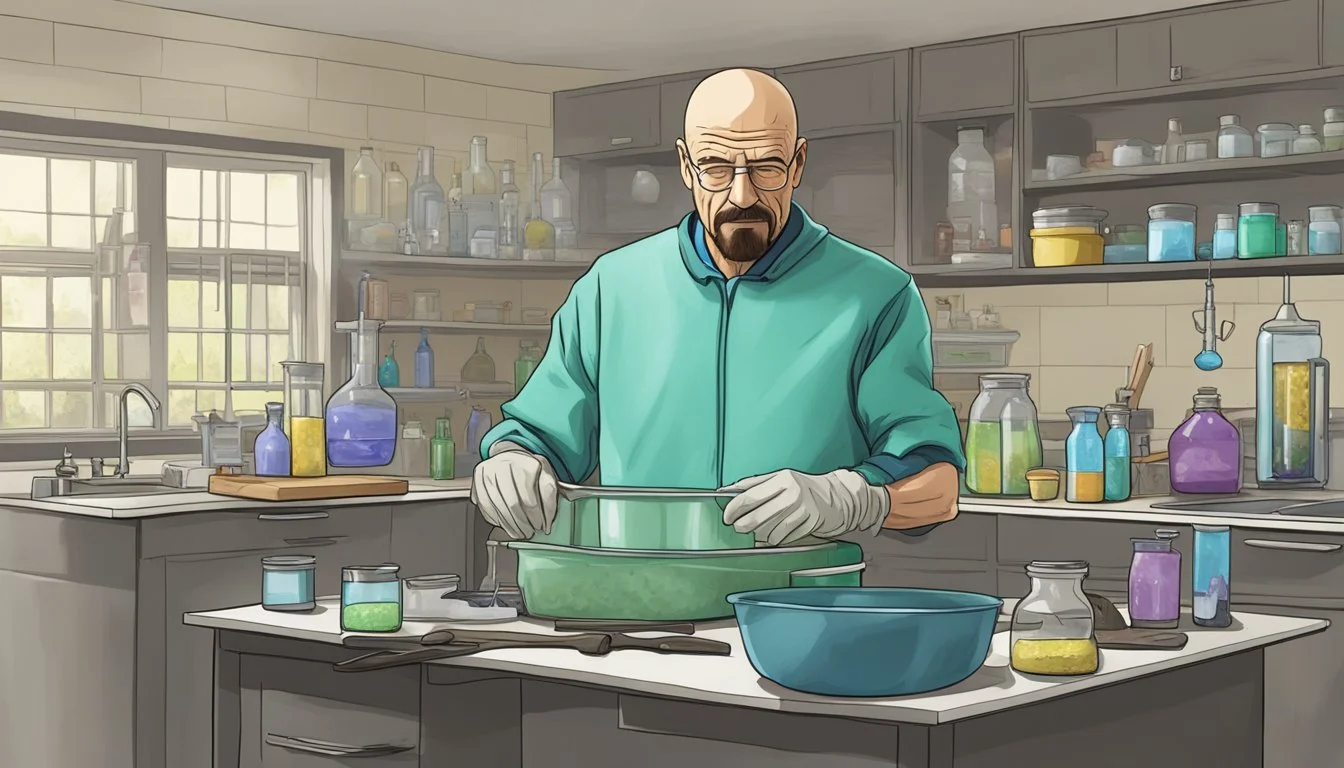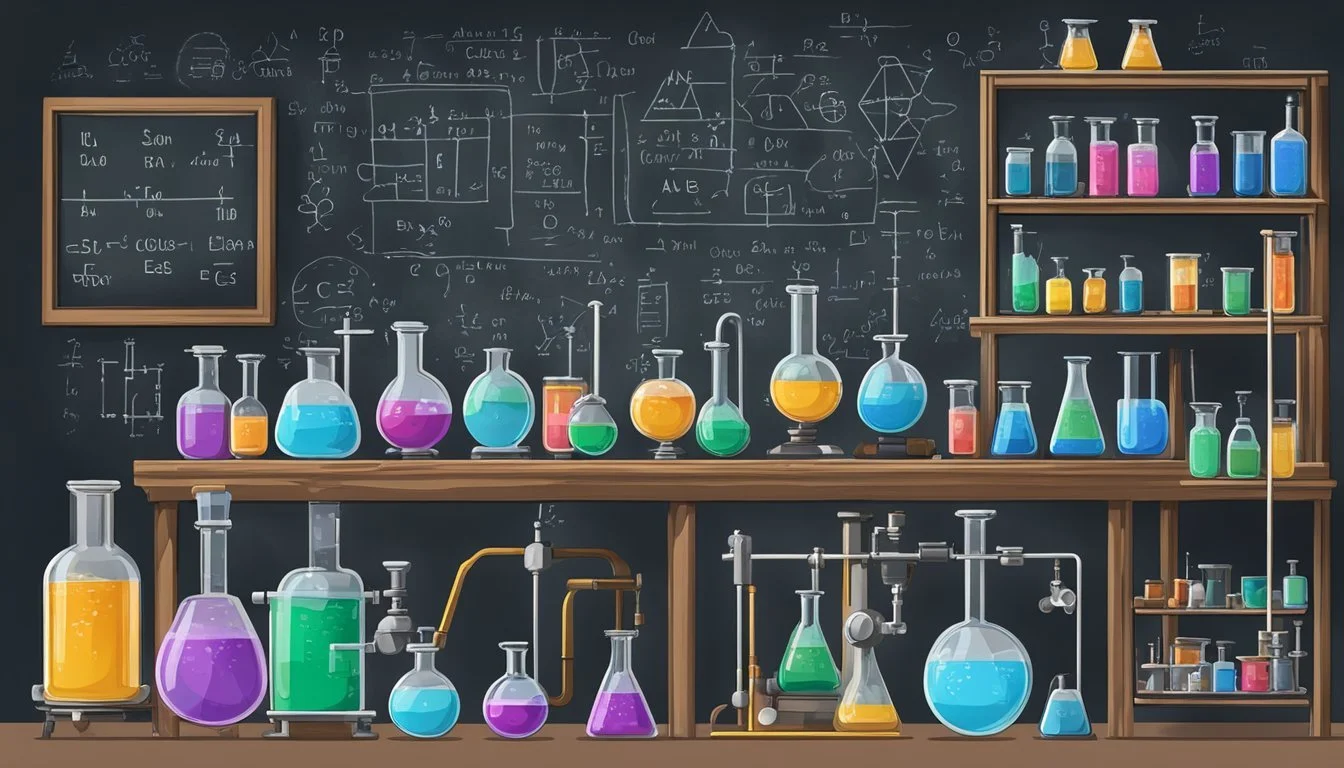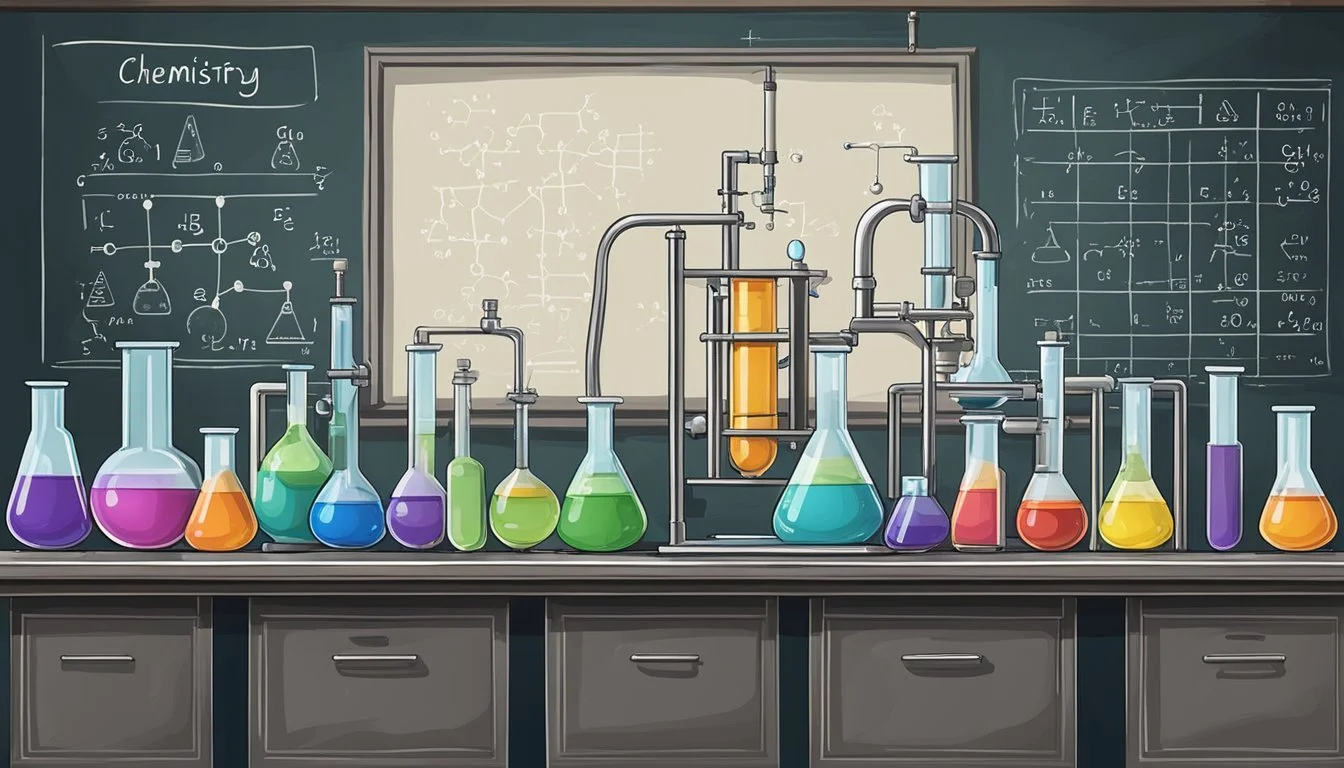The Chemistry of Morality: Ethical Dilemmas in Breaking Bad
A Study of Walter White's Descent
Breaking Bad, the critically acclaimed television series created by Vince Gilligan, explores the moral decay of its protagonist Walter White. As a high school chemistry teacher turned methamphetamine manufacturer, Walter's journey into the criminal underworld presents viewers with a series of complex ethical dilemmas.
The show's realistic portrayal of characters facing difficult choices forces audiences to confront their own moral compasses. Walter's transformation from a sympathetic family man to a ruthless drug lord challenges viewers to question the boundaries between right and wrong, and whether good intentions can justify harmful actions. This moral ambiguity is a hallmark of Breaking Bad's storytelling.
Throughout the series, ethical quandaries abound, ranging from Walter's initial decision to cook meth to support his family, to the increasingly violent measures he takes to protect his empire. These dilemmas serve as a lens through which viewers can examine their own values and the potential consequences of compromising one's principles.
The Role of Chemistry in 'Breaking Bad'
Chemistry serves as a central element in 'Breaking Bad', driving the plot and character development. It shapes Walter White's journey and influences key events throughout the series.
Walter White's Transformation through Chemistry
Walter White's expertise in chemistry catalyzes his transformation from a high school teacher to a drug lord. His knowledge allows him to produce high-quality methamphetamine, setting him apart in the criminal world.
White's background enables him to solve problems creatively, often using chemical reactions to overcome obstacles or eliminate threats.
As he delves deeper into the drug trade, his scientific approach becomes a metaphor for his calculated decisions and moral decay.
Chemistry as a Catalyst for Plot Development
Chemistry plays a crucial role in advancing the storyline of 'Breaking Bad'. The production of methamphetamine serves as the foundation for many plot points and character interactions.
Chemical processes are often depicted in detail, adding authenticity to the narrative. These scenes not only educate viewers but also create tension and suspense.
The show consults experts to ensure accurate portrayals of chemical reactions, balancing entertainment with scientific realism.
Methamphetamine and Its Consequences
The central focus on methamphetamine production in 'Breaking Bad' highlights the drug's devastating effects on individuals and communities. The series portrays the addictive nature of the substance and its impact on users' lives.
White's high-purity product becomes both a blessing and a curse, attracting dangerous competitors and law enforcement attention.
The show doesn't shy away from depicting the physical and psychological toll of methamphetamine use, serving as a stark warning about the consequences of drug abuse.
Moral Complexity and Ethical Dilemmas
Breaking Bad presents a nuanced exploration of morality through its characters' actions and choices. The show challenges viewers to grapple with the blurred lines between right and wrong, the far-reaching impacts of decisions, and the human capacity for rationalizing unethical behavior.
The Blurred Lines Between Good and Evil
Walter White's journey exemplifies the complex nature of morality. His initial motivation to provide for his family after his cancer diagnosis seems noble. Yet this good intention leads him down a dark path of criminal activity and violence.
The show forces viewers to question their ethical allegiances. Characters often make morally ambiguous choices, blurring the distinction between hero and villain. This complexity invites audiences to examine their own moral compasses and confront difficult questions about right and wrong.
Breaking Bad illustrates how easily one can slip from minor ethical compromises into more serious transgressions. Walter's gradual descent highlights how moral boundaries can erode over time when continually tested.
Consequences of Choices and Moral Decline
The series vividly portrays the ripple effects of moral decisions. Walter's actions have far-reaching consequences, impacting not only himself but also his family, friends, and countless strangers.
As Walter becomes more entrenched in the drug trade, viewers witness his moral decay. His choices lead to deaths, destroyed relationships, and shattered lives. This descent raises questions about the point of no return in ethical behavior.
The show emphasizes personal responsibility. Characters must face the repercussions of their choices, often in unexpected and devastating ways. This underscores the weight of moral decision-making in real-world scenarios.
Rationalization of Immorality
Breaking Bad masterfully depicts the human capacity for rationalizing unethical behavior. Walter repeatedly justifies his actions by claiming they are for his family's benefit.
As the series progresses, Walter's rationalizations become more elaborate and self-serving. He twists logic to maintain a sense of moral superiority despite committing increasingly heinous acts.
This aspect of the show highlights the dangers of self-deception. It demonstrates how individuals can convince themselves that wrong actions are justified, leading to a slippery slope of moral compromise.
Character Arcs and Development
Breaking Bad's characters undergo profound transformations throughout the series. Their evolving morality and ethical dilemmas drive the narrative forward, creating complex and compelling storylines.
Jesse Pinkman: Path to Redemption
Jesse Pinkman's journey from small-time drug dealer to moral center is a key element of Breaking Bad. Initially reckless and impulsive, Jesse faces numerous ethical challenges that shape his character.
His experiences with violence and loss gradually erode his carefree facade. Jesse develops a conscience, often struggling with the consequences of his and Walter's actions.
Key moments in Jesse's transformation include:
His attempts to protect children from the drug trade
Guilt over Jane's death and Andrea's murder
Refusing to kill Gale, showing his moral limits
Jesse's path to redemption culminates in his escape from captivity and rejection of the criminal world he once embraced.
Skyler White: Navigating Boundaries and Powerlessness
Skyler White's character arc explores the ethical boundaries of loyalty and self-preservation. Initially unaware of Walter's criminal activities, she evolves from a naive housewife to a reluctant accomplice.
Skyler's moral compass is tested as she grapples with:
Protecting her family from the truth
Managing illegal money through the car wash
Maintaining a facade of normalcy
Her journey highlights the complexities of powerlessness in the face of her husband's transformation. Skyler's attempts to establish control often backfire, leading to increasingly difficult ethical choices.
Gustavo Fring and the Facade of Legitimacy
Gustavo Fring's character development reveals the duality of his nature. His public persona as a respected businessman contrasts sharply with his role as a ruthless drug kingpin.
Fring's arc explores:
The maintenance of a carefully crafted public image
Cold, calculated decision-making in the criminal underworld
The gradual erosion of his composed exterior
His character challenges viewers to consider the thin line between legitimacy and criminality. Fring's downfall stems from his inability to reconcile these two aspects of his life.
Hank Schrader and the Pursuit of Justice
Hank Schrader's character arc transforms him from a boisterous DEA agent to a determined pursuer of justice. His journey is marked by personal and professional challenges that test his moral code.
Key aspects of Hank's development include:
Overcoming PTSD after violent encounters
Balancing his duty as a law enforcement officer with family loyalty
The obsessive pursuit of Heisenberg, even at great personal cost
Hank's unwavering commitment to justice ultimately leads to his tragic fate. His character embodies the conflict between legal and familial obligations in the face of moral ambiguity.
Themes of Power and Manipulation
Breaking Bad explores the complex dynamics of power and manipulation through its characters' actions and relationships. The series depicts a stark transformation as Walter White embraces his alter ego Heisenberg and exerts increasing control over those around him.
Heisenberg's Rise as a Drug Kingpin
Walter White's transformation into Heisenberg marks a dramatic shift in power dynamics. As he gains influence in the drug trade, his ethical boundaries blur. He manipulates rival dealers and eliminates threats to maintain his position.
Heisenberg's iconic pork pie hat and sunglasses become symbols of his newfound authority. This visual transformation mirrors his internal changes, as he sheds his meek persona for a more assertive one.
The character's pride in his product and criminal acumen fuel his ascent. He leverages his chemistry expertise to create a superior product, giving him a competitive edge in the market.
Manipulation of Others by Walter White
Walter's manipulation tactics evolve throughout the series. He initially uses guilt to coerce Jesse into partnering with him, exploiting their teacher-student dynamic.
As his confidence grows, Walter's manipulations become more calculated. He lies to his family, gaslights Skyler, and plays on Jesse's vulnerabilities to keep him under control.
Walter's ability to switch between his "family man" and "Heisenberg" personas showcases his mastery of manipulation. This duality allows him to navigate both his criminal and personal lives with increasing skill.
Saul Goodman and the Morality of Legal Representation
Saul Goodman embodies the ethical gray areas of legal representation. His slogan "Better Call Saul" hints at his willingness to bend rules for clients.
While providing necessary legal counsel, Saul often crosses ethical lines. He suggests money laundering schemes and connects Walter with criminal contacts, blurring the boundaries of legal practice.
Saul's character raises questions about the morality of defending known criminals. His actions highlight the tension between professional obligations and personal ethics in the legal field.
Societal Impact and Reflection of Human Nature
Breaking Bad explores complex societal issues and human nature through its portrayal of morally ambiguous characters and situations. The show delves into the consequences of addiction, moral relativism, and the blurred lines between right and wrong in modern society.
Addiction, Morality, and Society
Breaking Bad depicts the devastating effects of methamphetamine addiction on individuals and communities. The show's portrayal of Albuquerque's drug trade highlights societal inequalities and desperation that fuel substance abuse.
Characters like Jesse Pinkman illustrate the struggle of addiction and attempts at redemption. The series examines how addiction impacts families, relationships, and entire neighborhoods.
Walter White's descent into the drug world reflects society's emphasis on financial success at any cost. His actions reveal the potential for moral corruption when faced with dire circumstances.
Television's Mirror to Realism and Moral Relativism
Breaking Bad presents a gritty, realistic depiction of crime and its consequences. The show avoids glamorizing the drug trade, instead showcasing its brutal nature and far-reaching societal impacts.
Moral relativism is a central theme, as characters justify increasingly unethical actions. Walter White's transformation from law-abiding citizen to drug kingpin challenges viewers' notions of good and evil.
The series reflects real-world complexities, where morality exists in shades of gray rather than black and white. Characters face difficult choices with no clear right answers, mirroring ethical dilemmas in everyday life.
Narrative Techniques and Television Storytelling
Breaking Bad's exceptional storytelling and visual style elevated it to a landmark achievement in television. The show's narrative techniques and cinematography worked in tandem to create a gripping exploration of morality and human nature.
Storytelling as a Tool for Character Complexity
Breaking Bad's narrative structure allowed for deep character development, particularly with Walter White and Jesse Pinkman. The show employed non-linear storytelling, cold opens, and flashbacks to reveal layers of its characters over time.
Walter's transformation from a mild-mannered teacher to a ruthless drug lord unfolded gradually. This pacing gave viewers time to understand his motivations and internal conflicts.
Jesse's character arc was equally nuanced. His journey from small-time dealer to conflicted partner showcased the show's ability to craft multidimensional characters.
The writers used moral dilemmas to challenge characters and viewers alike. This approach created tension and fostered emotional investment in the story.
Cinematography and its Role in Crafting 'Breaking Bad'
Breaking Bad's visual style was integral to its storytelling. The cinematography framed characters' moral decay and enhanced the narrative's themes.
Distinctive color palettes reflected characters' emotional states and story arcs. For example, the shift from warm to cold tones mirrored Walter's descent into criminality.
Creative shot compositions added depth to scenes. Wide shots of the New Mexico desert emphasized characters' isolation, while tight close-ups captured their inner turmoil.
The show used visual motifs to reinforce themes. Recurring images of hazmat suits and chemical formulas underscored the intersection of science and crime.
Time-lapse sequences and montages efficiently conveyed the passage of time and the evolution of Walter's drug empire.
Cultural Resonance and Transformative Power
Breaking Bad captured audiences worldwide with its gripping narrative and complex characters. The show's cultural impact and ability to transform viewers' perceptions of morality and justice left an indelible mark on television history.
Breaking Bad: A Milestone in Pop Culture
Breaking Bad redefined the television landscape, becoming a cultural phenomenon. The series' popularity soared through word-of-mouth and critical acclaim. Its unique blend of dark humor, intense drama, and moral ambiguity resonated with viewers across demographics.
The show's influence extended beyond entertainment, sparking discussions on ethics, the American healthcare system, and the war on drugs. Breaking Bad's iconic imagery, such as Walter White's hazmat suit and pork pie hat, became instantly recognizable symbols in pop culture.
Fan theories, memes, and references to the show proliferated online, cementing its place in the digital zeitgeist. The series' success paved the way for more complex, morally ambiguous storytelling in television.
The Transformative Power of 'Breaking Bad' and Its Characters
Breaking Bad's transformative power lies in its ability to challenge viewers' moral compasses. The show's central character, Walter White, evolves from a sympathetic high school teacher to a ruthless drug lord, forcing audiences to question their ethical boundaries.
This character development exemplifies the series' exploration of moral decay. Viewers often found themselves conflicted, simultaneously rooting for and condemning Walter's actions. This cognitive dissonance sparked introspection and debates about morality.
Supporting characters like Jesse Pinkman and Skyler White underwent significant transformations, further emphasizing the show's theme of change. Their arcs highlighted the consequences of moral compromises and the ripple effects of one person's actions.
Breaking Bad's portrayal of its anti-hero protagonist challenged traditional notions of good and evil in storytelling. This nuanced approach to character development influenced subsequent TV series and films, encouraging more complex portrayals of morality in media.
Research and Realism in 'Breaking Bad'
'Breaking Bad' stands out for its meticulous attention to scientific accuracy and realistic portrayal of the drug trade. The show's creators consulted with real chemists to ensure the authenticity of Walter White's methamphetamine production process.
This commitment to realism extends to the depiction of drug enforcement efforts. The series portrays the challenges faced by law enforcement agencies in combating illegal drug manufacturing and distribution.
The show's creators conducted extensive research on the mechanics of drug cartels and the inner workings of law enforcement agencies. This attention to detail lends credibility to the narrative and enhances the viewer's immersion in the story.
'Breaking Bad' also explores the complex interplay between good and evil. Characters often find themselves in morally ambiguous situations, blurring the lines between right and wrong.
The series delves into the psychological effects of engaging in illegal activities, showcasing the gradual corruption of its characters. This realistic portrayal of moral decay adds depth to the narrative and provokes thought-provoking discussions among viewers.
By grounding the story in scientific facts and real-world scenarios, 'Breaking Bad' creates a compelling narrative that resonates with audiences. The show's commitment to realism serves as a backdrop for exploring complex ethical dilemmas and the consequences of moral choices.



